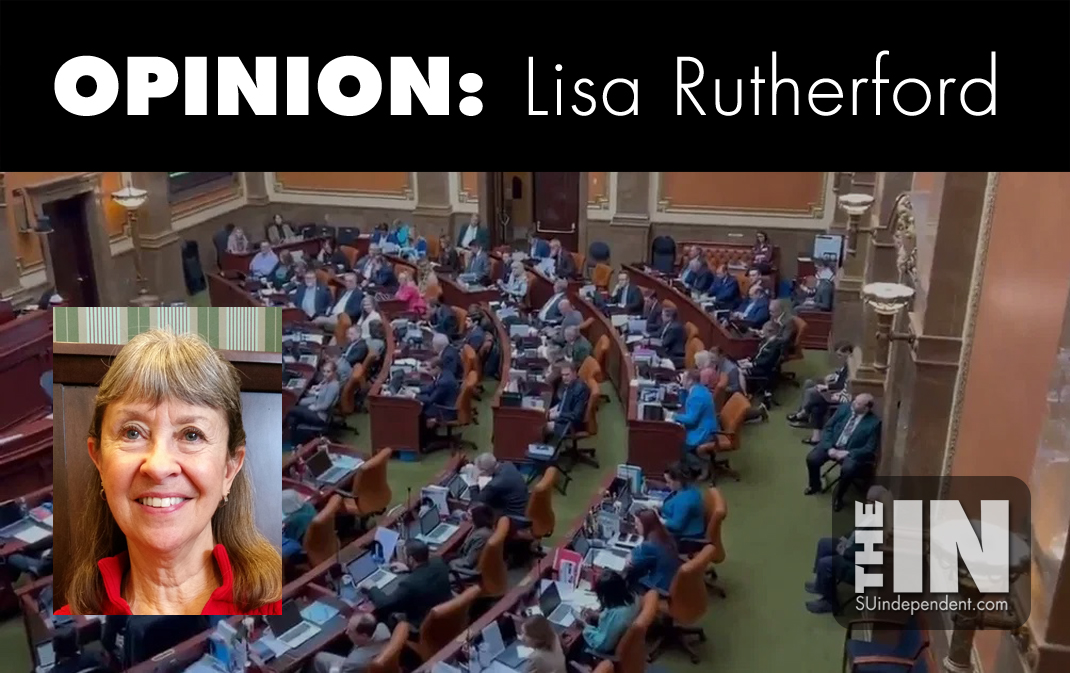
Utah Legislators Attack DEI, But Who Benefits?
– By Lisa Rutherford –
Efforts to deal with racial discrimination and other inequities began in the 1960s. I’ve experienced how discrimination works. While in college in Albuquerque, New Mexico, after my parents’ divorce and while my father was living in an apartment, I was told not to bring my Black girlfriend to the apartment pool because Dad had received complaints. My sorority refused to accept girls who were not Caucasian – refusing Black and Hispanic girls with great grades and strong qualities. While seeking a teaching job in El Paso, Texas, the job was given to a Hispanic applicant. Some might see this as reverse discrimination. I did not feel unfairly rejected. I’ve always felt that as a middle-class Caucasian, I had a substantial leg up compared to others from minority and lower-income populations.
So here we are decades down the road and diversity, equity and inclusion – DEI – still bedevils us.
Our legislature’s HB261 “Equal Opportunity Initiatives” attempts to deal with DEI. But who will benefit from these “equal” opportunities?
Legislators who oppose this bill and come from minority backgrounds state they see value in DEI personally. They talk about how DEI made them feel more included during their formative years. ORMS (The Institute or Operations Research and the Management Sciences) in their publication – “An Analytics Approach to Diversity, Equity and Inclusion” – notes that “Inclusion appears to be a key root cause of the diversity problem. Not feeling welcome, women and minorities are leaving the tech industry by hundreds of thousands.”
It’s interesting that although many legislators support this bill the Salt Lake Chamber of Commerce does not and issued this statement: “This bill is significant for businesses as it directly impacts the future talent pool. A diverse and inclusive workforce is not just a moral imperative but a strategic advantage for businesses aiming for sustained success.”
In fact, the bill itself requires an institution of higher education to contract with a third party to conduct campus climate surveys to determine how students and faculty are feeling about the campus environment. That should be done before this bill is passed – not after. How do legislators really know whether this bill is necessary? Are legislators afraid of what they might discover if the surveys are done now while DEI programs are still in place?
This bill reflects a nationwide political effort to eliminate DEI programs. The domino effect of these bills across our nation is yet to be realized. But I foresee more political division between conservative and progressive states, not less. It could affect where students choose to attend college and reduce the diversity that is so important in this world. Data from the National Center for Education Statistics reveal fewer students – not just male – are choosing to enroll in college. If Utah’s politicians are focused on making students of colors and others who feel unwelcome avoid Utah, leaving more room for white kids, this may serve that goal well. But if this bill’s proponents want to see all kids succeed, as they have insisted, they need to help those who really need help.
Many who support the bill say it stops discrimination by not singling out an individual based on their race, ethnicity, gender, sexual orientation or religion — and, instead, treats everyone the same. But that’s what we “supposedly” had before efforts to deal with unfair treatment of different groups began. Obviously, it was not working then, or we would not have been trying to fix this complex problem for over sixty years. Bias and discrimination have been with us for a very long time. It won’t be easy to fix, but going backward is certainly not the answer.
Quotes by Dr. Martin Luther King, Jr., were mentiond during the House Education Committee meeting on January 17. Yes, Dr. King wanted people to be judged solely on their character, but that still is not always done fifty-five years after his death! Many people still look at a black, brown or LGBTQ+ person and see that first. That “colors” their thoughts about that person one way or another, consciously or unconsciously. Dr. King wanted a peaceful way of achieving his goal, and DEI tries to do that. Some people feel DEI is creating conflict, but that is because of their reaction to DEI – not what DEI promotes.
Resistance to DEI by some is due to fear of change or feeling that their own opportunities are being compromised. If behind this legislative effort is a fear on the part of legislators that those who have been marginalized may take opportunities away from their own kids, perhaps they would do well to search their souls and acknowledge the opportunities that their own have had for some time.
Utah does not have a stellar reputation when it comes to minorities such as Blacks, Indigenous people, and other marginalized groups. This bill does nothing to improve that reputation. State leaders and others who support it should work toward a better future not go backward. Some marginalized people make it on their own; we should not use that as a standard for everyone by eliminating DEI programs. It remains to be seen if this bill provides the support sponsors say it will. Unfortunately, there are no official sanctioned studies to support the value of DEI. It’s been suggested that a legislative audit of the program be done before disbanding these programs. That sounds more reasonable to me than rushing this bill which may be enacted too quickly.




Kudos to Lisa Rutherford on this article. It focuses on the core of the problem: Seeing people as who they are as opposed to what race or ethnic group they may be a part of.